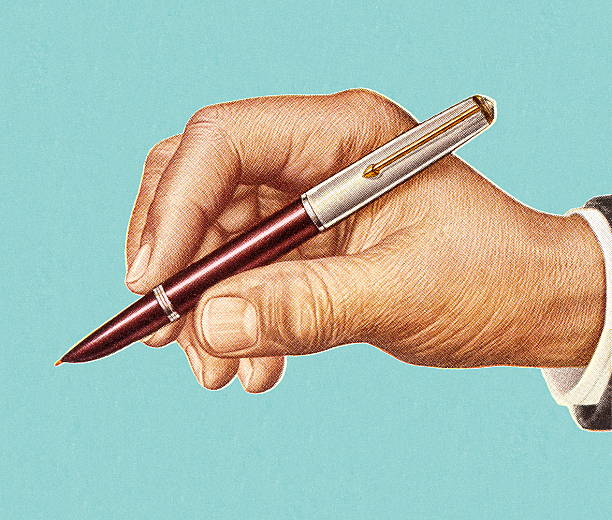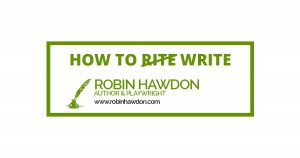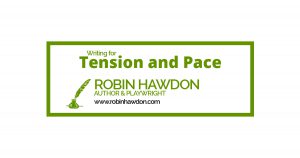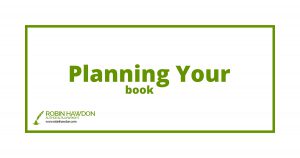This is a big one.
HOW DO YOU MAKE MONEY FROM YOUR WRITING?
It is a sobering fact that authors in the UK, whose primary occupation is writing, earn on average only around £10,000 p.a. from their royalties (and this includes the blockbusters’ earnings). American authors earn a bit more, but still not a living wage. And self-published authors earn a good deal less.

These figures have almost halved since the abolition of the Net Book Agreement, and the huge rise in cheap ebook sales. So how can one beat the trend?
I can only go by my own experience. With my playwrighting activities I have perhaps been luckier than some. Early on in my career, after various productions in festivals and fringe theatres which brought me satisfaction but little remuneration, I made the deliberate decision to try to break into the commercial theatre. Light comedies and farces were all the rage in those far-off days. ‘I’ll knock off a quick comedy,’ I thought, little realising what a huge learning curve that would prove to be. Eight years later, after innumerable try-outs and rewrites, I finally made London’s West End with The Mating Game. Over the years that play (of which I’m not particularly proud) has made me a lot of money, especially after transferring to many other countries. It was followed by perhaps twenty more comedies, three of which have earned serious money, half a dozen which have made more modest sums, and the rest just about merited the work put in.
My straight plays, which I value far more, have proved much harder to produce, and to earn real rewards. (Does this mean that the world really does prefer to laugh than to think?)
My novels have followed a similar path. So what are the lessons?
To be brutally honest, if you really want to make money at the novel writing game, it means you have to forget that earth shaking tale you have been planning concerning the secret life of your psychopathic half-sister, and take a serious look at what Amazon tells you about best-seller lists and genres. The biggest sales invariably fall under the categories of romantic fiction, thriller, crime, Y/A, and maybe science fiction. Of course there are numerous examples of supremely gifted writers who have beaten the trends and hit the headlines with something unique or atypical, but they have only managed it by winning some big prize, or by attracting rave reviews and appearances on the media book shows.
Then, having decided to go for it, and chosen your popular genre, you have to study the masters in the field and see how they did it, just as I had to do with my first stage comedy. The market is already full of famous names with their legions of followers, and they are all extremely skilled at their craft.
HOWEVER – there is always room for more. If one looks at the Amazon reviews for the big names, it is instructive how their later books often receive quite scathing comments from devoted fans, compared to their earlier raves. It’s extremely hard to keep up the standard, especially with a series (even Agatha Christie grew weary of Hercule Poirot). So there is always space for the new kid on the block to cut in and steal their thunder.
The other route to the glittering prizes is to adapt your thinking to other media. Most films are made from books. The reason is simple. It’s much easier for a producer to visualise plot, characters, settings when reading a book, than when thumbing through a screenplay by an unknown writer, with its shorthand dialogue and cursory stage directions (which is why the ‘pitch’ is so crucial). So be sure to have the visual aspect of your novel in mind when planning it. Can you move the setting to somewhere more original and filmic? Is the theme relevant to contemporary concerns? Are your main protagonists truly individual and unique in their habits/attitudes/reactions? Is the story unfolding through action, rather than through introspection and description? And can you make that action more original than the myriad sex scenes, fist fights, drownings, car chases, that we’ve already seen?
Another lucrative medium is television. One only has to consider the vast numbers of titles out there on Netflix, Amazon, Stan, etc, etc, to wonder at the gigantic scale of the world’s small-screen industry. Can you turn that great detective idea into a TV series (for which you only need to write the pilot and a synopsis)? Yes, it’s still a difficult medium to break into, but people are always on the lookout for the next great idea. Do you know anyone who knows someone who knows a TV producer who might take a look at your (brilliantly presented) project? Can you devote the time and energy to approaching all the agents, production companies, Facebook groups, et al, and bombarding them with your ground-breaking brainchild?
If you have both the talent and the perseverance, then you have a good chance of eventually breaking through the walls of mediocrity out there and hitting the jackpot. From there on, the world’s your oyster, or at least your moules frites.
Here’s to opening the champagne.
(But even if you never get to open the bubbly, keep writing. See early Tip 2 – https://robinhawdon.com/job-satisfaction/)
And do sign up here for my newsletter.
Subscribe to Books & Stuff

Email Robin for a FREE online flip-book edition of 'Dinner With Churchill' (or his previous books, 'The Land, The Land' and 'Number Ten').









